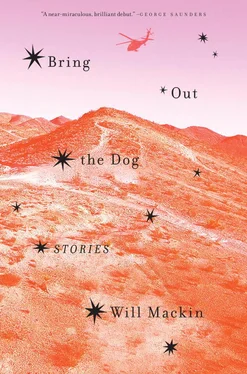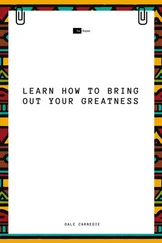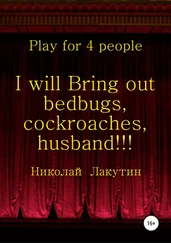Will Mackin - Bring Out the Dog
Здесь есть возможность читать онлайн «Will Mackin - Bring Out the Dog» весь текст электронной книги совершенно бесплатно (целиком полную версию без сокращений). В некоторых случаях можно слушать аудио, скачать через торрент в формате fb2 и присутствует краткое содержание. Город: New York, Год выпуска: 2018, ISBN: 2018, Издательство: Random House Publishing Group, Жанр: prose_military, на английском языке. Описание произведения, (предисловие) а так же отзывы посетителей доступны на портале библиотеки ЛибКат.
- Название:Bring Out the Dog
- Автор:
- Издательство:Random House Publishing Group
- Жанр:
- Год:2018
- Город:New York
- ISBN:978-0-812-99564-0
- Рейтинг книги:5 / 5. Голосов: 1
-
Избранное:Добавить в избранное
- Отзывы:
-
Ваша оценка:
- 100
- 1
- 2
- 3
- 4
- 5
Bring Out the Dog: краткое содержание, описание и аннотация
Предлагаем к чтению аннотацию, описание, краткое содержание или предисловие (зависит от того, что написал сам автор книги «Bring Out the Dog»). Если вы не нашли необходимую информацию о книге — напишите в комментариях, мы постараемся отыскать её.
Bring Out the Dog — читать онлайн бесплатно полную книгу (весь текст) целиком
Ниже представлен текст книги, разбитый по страницам. Система сохранения места последней прочитанной страницы, позволяет с удобством читать онлайн бесплатно книгу «Bring Out the Dog», без необходимости каждый раз заново искать на чём Вы остановились. Поставьте закладку, и сможете в любой момент перейти на страницу, на которой закончили чтение.
Интервал:
Закладка:
BIG COUNTRY AND I knelt in the mud on opposite sides of Mir. Big Country dug in his med pouch. I kept pressure on the exit wound with one hand while talking on the radio with the other. I tried to tell everyone where we were and what had happened, but my thumb kept slipping off the transmit button. I used the crows, circling overhead, to reference our position. But there were other crows circling other fields. Able crashed through the corn first. He shoved me out of the way.
“I’m sorry,” Big Country said to Able. “I thought—”
“Get him out of here,” Able said to me.
As I walked with Big Country across the field, the noises of the lifesaving effort fell away. Standing in a far corner, Big Country closed his eyes and sighed. I told him it was a mistake anyone could’ve made and Big Country took a deep breath. Then he started, very softly, to roll his lips in scales. Low to high, do re mi…, then high to low, as if warming up to sing. He scrunched his shoulders and let them drop. He stretched his face into smiles and frowns. He rolled his lips— brrreee, brrrray, brrraaa. It was all very soft and private, with his eyes still closed, which made me want to walk away. Later, Big Country’s boys explained to me that his dream was to star on Broadway. That he did those exercises to keep his voice strong, so that he could audition when his army career was over. Had I walked away from Big Country, I would’ve never known.
IN HIS INVOCATION, the chaplain called God “the author of life.” Hal told a joke, then opened it up to the rest of the troop. We sat on the wooden benches, looking up at the ammo can on the podium, waiting for someone to go first. That someone was Frank, with his boxer’s nose and his big Hawaiian shirt.
Frank reminisced about the night Mir had torn open the barricaded shooter’s throat. This had happened at a walled compound at the base of the Khost bowl, under a new moon. The shooter had hidden behind a woodpile in the far corner of the courtyard. He opened up on us from there as we filed through the gate. Frank’s recollection differed from mine in that Frank felt like he was walking on the moon, whereas I felt like I was at the bottom of the sea. Regardless, we agreed on one key point: what had driven Mir to launch himself at the triggerman, and kill him so viciously, had been love, pure and simple.
Next, Chuck told the story about a mutt who’d lived on the range in Texas, where Chuck had spent the decades between Vietnam and Afghanistan. Chuck explained how, leaving the mutt behind at the house, he’d ride off on horseback to mend distant fences. Not even Chuck knew when he’d be back. Yet this mutt, who apparently lay on the front porch from one unchanging day to the next, did. Furthermore, the mutt knew, from three hundred and sixty degrees of total emptiness, the direction from which Chuck would return. Walking this line, the mutt would meet Chuck halfway. Chuck ended his story there, leaving us to imagine their reunion on a dry, level plain, where shade cast by tall clouds crept over scattered rocks. After Chuck, it was my turn.
I told the story of how Mir had once bitten my hand. This had happened on a winter’s night, at an outpost high in the mountains bordering Pakistan. I was outside, in the snow, walking to the shitters. Starlight had fallen on Able and Mir walking toward me. As we’d converged, Mir had wheeled around and chomped my hand. His teeth had hit bone, and it had stung like a motherfucker. I’d said as much, loudly. Able had stopped walking and turned on his headlamp.
“What?” he’d asked.
“Fucker bit my hand,” I’d said.
Able had shone his light on Mir, bug-eyed and panting steam. Then he’d turned his light on my hand. Through the fog of my own breath, I was surprised to find the skin unbroken. I was surprised that my hand was not on fire.
During my eulogy for Mir, I talked about how sharply that bone had stung. How that sting had spread to every other bone in my hand. How it had risen into the bones of my arm and neck. How the pain had almost made me feel bad for the enemy.
Subsequent eulogies turned into calls for revenge. The inevitability of this saddened me more than Mir’s death, or the fact that the men we’d been after the night before had escaped. In all likelihood, they’d spooked after hearing the 60’s report. We’d found their warm bedrolls in a tearoom. Their phone booth odor had lingered, but without Mir we were unable to track it into the night. Now we’d have to hunt those men down and kill them, one by one. Then hunt down their fathers and sons. Then their cousins and uncles, and so on.
As the penultimate eulogy wound to an unforgiving close, Able tilted in his seat, looking a little slack-jawed. He was either lost in thought or half-asleep. Probably the latter, since he’d stayed awake all day. Not only had he lost his best friend, he’d carried his bagged-up remains to the morgue, and waited for Mir to be cremated. He’d walked his ashes back to the camp. Then, while he was on the phone to the States, arranging for Mir’s replacement, he’d searched the hard drive for photos to decorate the ammo can. He’d printed those photos, cut them out, and taped them to the sides, all the while thinking about what he was going to say for the eulogy.
Hal elbowed Able and pointed to the podium: Your turn. Able looked at the podium as if he’d never seen such a thing. The plug of chewing tobacco, poking out from his lower lip, appeared cold and whiskered. Able used his tongue to roll it into his paper cup. Standing, he set the cup on the seat of his folding chair. He walked a bent line to the podium, and stared out at us through bloodshot eyes.
“It was a Tuesday, three years ago. November,” Able began.
He’d left our compound in Virginia Beach at zero four and driven all the way into the Green Mountains of Vermont. The leaves were all sorts of colors. He’d reached the monastery gates around noon, and parked across the street. The wrought iron bars were topped with angels. There was a call box on the stone pillar to his right. He’d pushed the button and said, “I’m Dave Jones from Poseidon Security,” or whatever the cover story was at the time. “I’m here for the dog.”
The monk on the other end of the call box was like, “Great. We just need you to come inside and complete our assessment.”
Able had picked up dogs from the monks before. He’d done all of their assessments. He knew that the monks would sit him down in their little classroom and ask their little questions. What are your shortcomings? How do they prevent you from being a better person? What does it mean to be a better person? Able understood the rationale behind this line of questioning—that his limitations, via his interactions with the dog, would become the dog’s limitations. That only through a constant process of self-improvement would he and the dog evolve into a truly effective team. Able did not necessarily agree with this philosophy, which the monks liked to call “the mirror.” But he had to hand it to them. They’d built a highly successful operation upon it.
The monastery gates had parted, revealing a world unto itself. Able had stood at the threshold of that world in a blue work shirt. The patch over his left pocket had advertised: POSEIDON. The name tag over his right pocket had been embroidered: DAVE. Through falling maple leaves, Able had looked down the road that led to the ivy-covered bell tower. Previously, he’d walked down that road, around the bell tower, and into the classroom. Previously, he’d admitted to the following shortcoming: he couldn’t let things be.
Able had pushed the button on the call box again. “I’m not doing the assessment,” he’d said. “I have a long drive home. So, please, just bring out the dog.”
Читать дальшеИнтервал:
Закладка:
Похожие книги на «Bring Out the Dog»
Представляем Вашему вниманию похожие книги на «Bring Out the Dog» списком для выбора. Мы отобрали схожую по названию и смыслу литературу в надежде предоставить читателям больше вариантов отыскать новые, интересные, ещё непрочитанные произведения.
Обсуждение, отзывы о книге «Bring Out the Dog» и просто собственные мнения читателей. Оставьте ваши комментарии, напишите, что Вы думаете о произведении, его смысле или главных героях. Укажите что конкретно понравилось, а что нет, и почему Вы так считаете.












